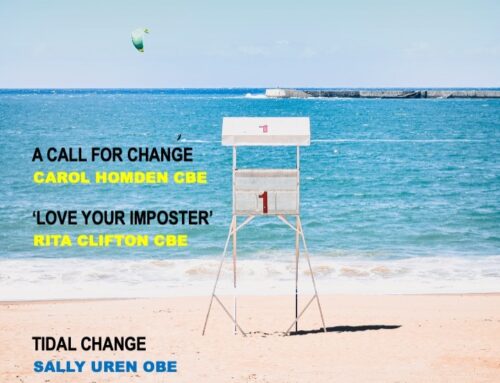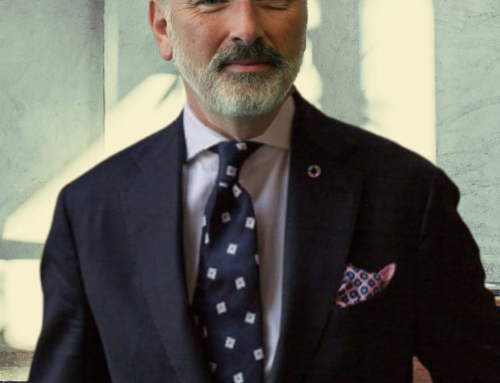Disruption by The Thousands

We will need thousands of disruptive ideas to repair the world:
I do not know what the “world after” will look like, the world that will be ours after this unprecedented crisis. But one thing of which I am sure is that we will need to deploy great imagination to recover. Conventional solutions simply will not work in today’s circumstances.
We will need to be resolutely inventive.
And this is far from being guaranteed, since in terms of inventiveness, we are behind, much further behind that we might imagine. In the recent past, the rhythm of innovation has actually greatly decreased. It may seem counterintuitive but according to an MIT estimate, research productivity has dropped by an average of 5.3 percent each year over the past ten years in the United States. The “Vitality Index”, which is the percentage of total revenues generated by new products and services, has been in net decline. This is why in 2016 The Wall Street Journal ran an article entitled, “The Economy’s Hidden Problem: We’re Out of Big Ideas”.
How can this be possible? We all have the impression that innovation is omnipresent. But the truth is that tech industries and others born of the internet, which for the most part are highly inventive, still only represent a fraction of the overall economy. As for the so-called “legacy companies”, they are just not innovating enough. And their innovations are most often of an incremental nature, very rarely disruptive. Yet, it has been demonstrated that incremental innovations are simply not sufficient. Companies also need disruptive innovations to succeed and to allow them to stand the test of time.
Which is why in recent years I never missed the opportunity to stress that the world needs more disruption. In the positive sense of the word, meaning that we need original, unheard-of solutions that challenge conventional thinking. The severity of the crisis we are living is
such that this imperative has never been so urgent. We are probably going to have to abandon a great number of the conventions that have dictated our lives. Our lives before.
More than ever, we need disruptive thinking. The meaning of disruptive is the very opposite of gradual, linear, continuous. “Disruptive” describes advances that are not progressive, but to the contrary that manifest themselves through leaps in thought or imagination. This is exactly what the world needs today. It’s a vital necessity.
We will need disruption in each of the world’s great domains. Societal disruption to reinforce our current élan of solidarity; economic disruption to rethink the right balance between the market and the State; political disruption to help us live in harmony collectively; social disruption to definitely establish true equality of the sexes, and ecological disruption to protect our future generations, having experienced over these last weeks the least carbonized times of the last decades.
In today’s context, the role of the company must go beyond a purely economic dimension. More and more leaders of industry now believe that companies are powerful platforms for social change. They share the belief that the enterprise has no reason to exist if it doesn’t contribute to the common good. Corporate Social Responsibility is no longer a side issue, it is more and more at the very heart of corporate strategies and business models. Altruism, as a means of creating value, would have been seen as an incongruous idea until recently, but it is one that is broadly shared today.
Many business leaders are convinced that it is the duty of companies to help resolve the problems our planet is facing. Marc Benioff, the founder of Salesforce, goes as far as to say: “the business of business is to improve the state of the world”. As for Emmanuel Faber, CEO of Danone, a major food multinational, he thinks that “the challenge of globalization is to know what social role it can and must play”. In the last ten years, a change has been taking place in the way we do business. This crisis, so deep, can only accelerate it. There will be lasting shifts in social behaviour, working habits, and consumption patterns. In fact, new ideas often emerge in response to extreme needs that arise during a crisis.
In companies, disruption has to do with strategies, business models, and innovations of rupture. Here are three examples. A start-up has invented a chemical process to turn plastic bags into bricks. Bricks that are strong, water-resistant, and very cheap; they are used to build low-cost houses and schools. Another company has discovered a way of extracting greenhouse gas emissions from the atmosphere, turning it into solid, non-polluting matter. Yet another has found a way to harness the energy of falling rainwater, and transform it into electricity. Every day, lots of ideas like these demonstrate the point to which such a great part of the world’s fertile imagination is to be found inside companies. We will need it to find the thousands of disruptive ideas that will help us repair the world.
The days ahead will require a great amount of inventiveness. From companies, and thus from the people inside them. The future of each one of us will depend upon the imagination of us all. I believe in everyone’s capacity to be disruptive, imaginative, entrepreneurial. We need to liberate the creative potential that lies within each of us. All of us must give life to, and nourish, what inside of us is the most disruptive.
As Gandhi said: “Be the change you want to see in the world”.
Jean-Marie Dru
Chairman, TBWA\Worldwide
Twitter: @jeanmariedru
LinkedIn: https://www.linkedin.com/in/jeanmariedru/


Jean-Marie Dru was the first person to employ the word ‘disruption’ in a business context, years before it became common parlance. In 1992, he published a full-page ad in the Wall Street Journal simply entitled DISRUPTION. Prior to this, before the word became used by the agency he heads, it was only used infrequently, mostly to describe negative events, like floods or earthquakes. At that time, Jean-Marie registered Disruption as a trademark, which TBWA now owns in over 40 countries. Since 1991, the Disruption Methodology has been at the heart of TBWA’s work and is based on a three-step roadmap: Convention-Disruption-Vision. Thousands of Disruption Day workshops have been organized with clients all over the world.
Disruption is so deeply embedded in the core of our culture, that Troy Ruhanen, when he joined the company 6 years ago decided that TBWA would henceforth be called TBWA, The Disruption Company.
Disruption by The Thousands

We will need thousands of disruptive ideas to repair the world:
I do not know what the “world after” will look like, the world that will be ours after this unprecedented crisis. But one thing of which I am sure is that we will need to deploy great imagination to recover. Conventional solutions simply will not work in today’s circumstances.
We will need to be resolutely inventive.
And this is far from being guaranteed, since in terms of inventiveness, we are behind, much further behind that we might imagine. In the recent past, the rhythm of innovation has actually greatly decreased. It may seem counterintuitive but according to an MIT estimate, research productivity has dropped by an average of 5.3 percent each year over the past ten years in the United States. The “Vitality Index”, which is the percentage of total revenues generated by new products and services, has been in net decline. This is why in 2016 The Wall Street Journal ran an article entitled, “The Economy’s Hidden Problem: We’re Out of Big Ideas”.
How can this be possible? We all have the impression that innovation is omnipresent. But the truth is that tech industries and others born of the internet, which for the most part are highly inventive, still only represent a fraction of the overall economy. As for the so-called “legacy companies”, they are just not innovating enough. And their innovations are most often of an incremental nature, very rarely disruptive. Yet, it has been demonstrated that incremental innovations are simply not sufficient. Companies also need disruptive innovations to succeed and to allow them to stand the test of time.
Which is why in recent years I never missed the opportunity to stress that the world needs more disruption. In the positive sense of the word, meaning that we need original, unheard-of solutions that challenge conventional thinking. The severity of the crisis we are living is
such that this imperative has never been so urgent. We are probably going to have to abandon a great number of the conventions that have dictated our lives. Our lives before.
More than ever, we need disruptive thinking. The meaning of disruptive is the very opposite of gradual, linear, continuous. “Disruptive” describes advances that are not progressive, but to the contrary that manifest themselves through leaps in thought or imagination. This is exactly what the world needs today. It’s a vital necessity.
We will need disruption in each of the world’s great domains. Societal disruption to reinforce our current élan of solidarity; economic disruption to rethink the right balance between the market and the State; political disruption to help us live in harmony collectively; social disruption to definitely establish true equality of the sexes, and ecological disruption to protect our future generations, having experienced over these last weeks the least carbonized times of the last decades.
In today’s context, the role of the company must go beyond a purely economic dimension. More and more leaders of industry now believe that companies are powerful platforms for social change. They share the belief that the enterprise has no reason to exist if it doesn’t contribute to the common good. Corporate Social Responsibility is no longer a side issue, it is more and more at the very heart of corporate strategies and business models. Altruism, as a means of creating value, would have been seen as an incongruous idea until recently, but it is one that is broadly shared today.
Many business leaders are convinced that it is the duty of companies to help resolve the problems our planet is facing. Marc Benioff, the founder of Salesforce, goes as far as to say: “the business of business is to improve the state of the world”. As for Emmanuel Faber, CEO of Danone, a major food multinational, he thinks that “the challenge of globalization is to know what social role it can and must play”. In the last ten years, a change has been taking place in the way we do business. This crisis, so deep, can only accelerate it. There will be lasting shifts in social behaviour, working habits, and consumption patterns. In fact, new ideas often emerge in response to extreme needs that arise during a crisis.
In companies, disruption has to do with strategies, business models, and innovations of rupture. Here are three examples. A start-up has invented a chemical process to turn plastic bags into bricks. Bricks that are strong, water-resistant, and very cheap; they are used to build low-cost houses and schools. Another company has discovered a way of extracting greenhouse gas emissions from the atmosphere, turning it into solid, non-polluting matter. Yet another has found a way to harness the energy of falling rainwater, and transform it into electricity. Every day, lots of ideas like these demonstrate the point to which such a great part of the world’s fertile imagination is to be found inside companies. We will need it to find the thousands of disruptive ideas that will help us repair the world.
The days ahead will require a great amount of inventiveness. From companies, and thus from the people inside them. The future of each one of us will depend upon the imagination of us all. I believe in everyone’s capacity to be disruptive, imaginative, entrepreneurial. We need to liberate the creative potential that lies within each of us. All of us must give life to, and nourish, what inside of us is the most disruptive.
As Gandhi said: “Be the change you want to see in the world”.
Jean-Marie Dru
Chairman, TBWA\Worldwide
Twitter: @jeanmariedru
LinkedIn: https://www.linkedin.com/in/jeanmariedru/


Jean-Marie Dru was the first person to employ the word ‘disruption’ in a business context, years before it became common parlance. In 1992, he published a full-page ad in the Wall Street Journal simply entitled DISRUPTION. Prior to this, before the word became used by the agency he heads, it was only used infrequently, mostly to describe negative events, like floods or earthquakes. At that time, Jean-Marie registered Disruption as a trademark, which TBWA now owns in over 40 countries. Since 1991, the Disruption Methodology has been at the heart of TBWA’s work and is based on a three-step roadmap: Convention-Disruption-Vision. Thousands of Disruption Day workshops have been organized with clients all over the world.
Disruption is so deeply embedded in the core of our culture, that Troy Ruhanen, when he joined the company 6 years ago decided that TBWA would henceforth be called TBWA, The Disruption Company.



